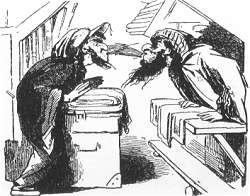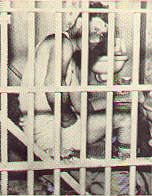 NATO and Afghan troops clashed with suspected Taliban insurgents on Monday in southern Afghanistan, shortly before calling in an airstrike on a compound that left two militants dead, a spokesman said. The clash started when militants opened fired and lobbed mortars toward NATO and Afghan troops in the Gereshk district of Helmand province, said Squadron Leader Dave Marsh, a spokesman for NATOs International Security Assistance Force. Two Afghans and one NATO soldier were lightly wounded in the clash, Marsh said. NATO and Afghan troops clashed with suspected Taliban insurgents on Monday in southern Afghanistan, shortly before calling in an airstrike on a compound that left two militants dead, a spokesman said. The clash started when militants opened fired and lobbed mortars toward NATO and Afghan troops in the Gereshk district of Helmand province, said Squadron Leader Dave Marsh, a spokesman for NATOs International Security Assistance Force. Two Afghans and one NATO soldier were lightly wounded in the clash, Marsh said.
A tribal leader said that western forces killed five Afghan civilians in the airstrike in Helmand. The elder, Meera Jan, said civilian houses were hit in the attack. As well as the five people killed, four were wounded, he said. A spokeswoman for NATO troops in Afghanistan said an airstrike had been carried out in the Gereshk district of Helmand province late on Sunday but NATO forces were not involved. A spokesman for a separate US-led force said he had no information about any air strike.
| Must have been the Swedish air force on a marketing run for the Grippen. |
Meanwhile, during a search operation in neighbouring Kandahar province, Afghan troops arrested a high-ranking suicide attack coordinator in Panjwayi district, the ISAF said on Monday. An ISAF statement said that Mullah Mohammad Wali organised suicide attacks in Kandahar and worked for the Taliban.
Separately, New Zealand Prime Minister Helen Clark said on Monday New Zealand would extend its military commitment in Afghanistan to September 2008. New Zealand has had 120 soldiers serving in a provincial reconstruction team in Bamiyan province for 3-1/2 years and their term would be extended for another year, Clark said. The objective is to ensure that Afghanistan does not revert to being a failed state and again become a haven for terrorists, Clark said in a statement.
Defence Minister Phil Goff told a press conference the security situation in Bamiyan province was less dangerous than other areas in the country. Under the commitment, New Zealand will also supply a small number of soldiers to help train the Afghan National Army, work at the International Security Assistance Force headquarters and work in a medical unit at Kandahar. A New Zealand frigate will be deployed to the Arabian Gulf in the middle of next year as part of a multi-national maritime security force and four police will also help train local police in Afghanistan.
German Interior Minister Wolfgang Schaeuble said on Monday that Germany would not bow to terrorist threats demanding the withdrawal of its troops from Afghanistan. We will not be blackmailed, Schaeuble told RBB radio. He added, however, that the government took seriously threats made at the weekend by two Islamist groups to attack Germany and to execute two German hostages being held in Iraq unless Berlin ended its Afghanistan mission. We are part of a global target. We should have no illusions that we are as much under threat as Spain, England or other nations, Schaeuble told RBB.
He said German soldiers were also contributing to our own security by helping to stabilise Afghanistan. Germany has almost 3,000 troops in northern Afghanistan, where it commands the NATO-led International Security Assistance Force. |
 Kurds and Turkish nationalists took to the streets of German cities Saturday to demonstrate against one another as tension rose amid portents of war in Turkey's south-east. Apart from a brawl in the port city of Hamburg, the demonstrations passed off without violence. The nationwide turnout on both sides totalled more than 10,000, according to police figures. German Interior Minister Wolfgang Schaeuble warned in the newspaper Bild am Sonntag, set to appear Sunday, that the ethnic conflict could radicalize both Kurds and Turks living in Germany. He appealed for protests to stay peaceful.
Kurds and Turkish nationalists took to the streets of German cities Saturday to demonstrate against one another as tension rose amid portents of war in Turkey's south-east. Apart from a brawl in the port city of Hamburg, the demonstrations passed off without violence. The nationwide turnout on both sides totalled more than 10,000, according to police figures. German Interior Minister Wolfgang Schaeuble warned in the newspaper Bild am Sonntag, set to appear Sunday, that the ethnic conflict could radicalize both Kurds and Turks living in Germany. He appealed for protests to stay peaceful. 
 The European Union does not support the idea of using assassinations in the fight against terrorism, EU Justice Commissioner Franco Frattini was quoted as saying on Thursday. Frattini was responding to comments made by
The European Union does not support the idea of using assassinations in the fight against terrorism, EU Justice Commissioner Franco Frattini was quoted as saying on Thursday. Frattini was responding to comments made by  KARLSRUHE, Germany - A Lebanese Muslim student accused of membership in a previously unknown terrorist group that narrowly failed to blow up two German passenger trains three weeks ago was remanded in custody on Sunday, a day after his arrest.
KARLSRUHE, Germany - A Lebanese Muslim student accused of membership in a previously unknown terrorist group that narrowly failed to blow up two German passenger trains three weeks ago was remanded in custody on Sunday, a day after his arrest.